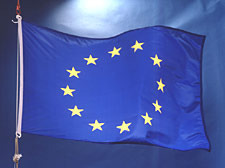Chemours official urges participation in ECHA consultation to save future of industries including automotive, semiconductor, chemicals...
London – There is still a glimmer of opportunity to stop a proposed EU ban on fluoroelastomers and other fluorinated polymers and chemicals and the devastation it would cause to entire industries and economies in the region.
That was the only positive message to emerge from an industry webinar on a proposed ban, from 2025, on all per- and poly-fluoroalkyl substances (PFAs) as being “persistent in the environment.”
The European Chemical Agency (ECHA), on 22 March, launched a six-month consultation process on the proposals, which were prepared by authorities in Denmark, Germany, The Netherlands, Norway and Sweden.
Particularly surprising in the dossier supporting the ban was the broad definition of PFAs, said Cedric Triquet, EMEA strategy and advocacy director, advanced performance materials at Chemours.
Concern over ‘persistency’ was the main justification for the "total ban", the authorities deciding that a substance-by-substance approach would be too slow.
“This matters because the proposals do not differentiate between different families among PFAs or the fact that, for example, fluoropolymers are a really different type of substance,” Triquet said.
Therefore, more than 10,000 substances – daubed ‘forever chemicals’ by ECHA – could be eliminated after a transition period of 18 months, he explained in the 29 March webinar on the topic.
As the proposed restrictions cover the manufacture, production, import and use of PFAs in an article or as a raw material, Triquet said, for example, that even “the importation of microchips into the EU would no longer be possible.”
And, while a limited number of products might be derogated for five or 12 years, even such a “delayed ban” would undermine investment in the EU by many industries.
The Chemours official went on to detail how “fluoropolymers are currently essential in a huge number of industry, and application, not to say in all of them.”
For instance, he said, no other industry, or at least not many, would be able to continue to survive without the solutions that the chemicals industry brings.
“But chemicals manufacture needs [fluoropolymer] seals, gaskets, and many other products like linings and coatings to operate safely and protect people and the environment.”
Similarly, automotive vehicles, including electric vehicles, rely heavily on fluoropolymers in a wide range of parts, said Triquet who also referenced the EU aerospace industry, asking: “who would want to fly in an airplane without fire-resistant cables?.”
To further illustrate the looming situation, he cited how recent microchip shortages had severely impacted the EU automotive industry and many other industries.
“This shows how critical this industry is for all other industries,” said Triquet. "But without fluoropolymers, there is no European semiconductor industry.”
The Chemours official cited an independent analysis showing that the total economic loss for the silicon industry of not being able to operate any longer in Europe would be over €63 billion and cost 21,000 jobs.
Ironically, also under threat from the PFAs ban is the EU's own Green Deal programme, which relies on the development of new-mobility, hydrogen-fuel and other clean-energy technologies, all of which rely on fluoropolymers.
To avert such disastrous outcomes from the proposed EU ban, stakeholders throughout the fluorochemicals and fluoropolymers supply-chain are being urged to participate actively in the ECHA consultation process.
“For any market, any application, any use, where there is a clear necessity for feedback to the authorities, this has to happen during the public consultation,” said Triquet. “We cannot miss this [opportunity] as it is very critical for industry.
“Please submit information with data showing why this product is essential for your application, the social-economic impact if you have exit and how European industry cannot afford this.”
Moreover, Triquet emphasised, “if companies do not spend time or resources now in contributing to the ECHA consultation, then the political case [against the proposed ban] is going to be much weaker.”



